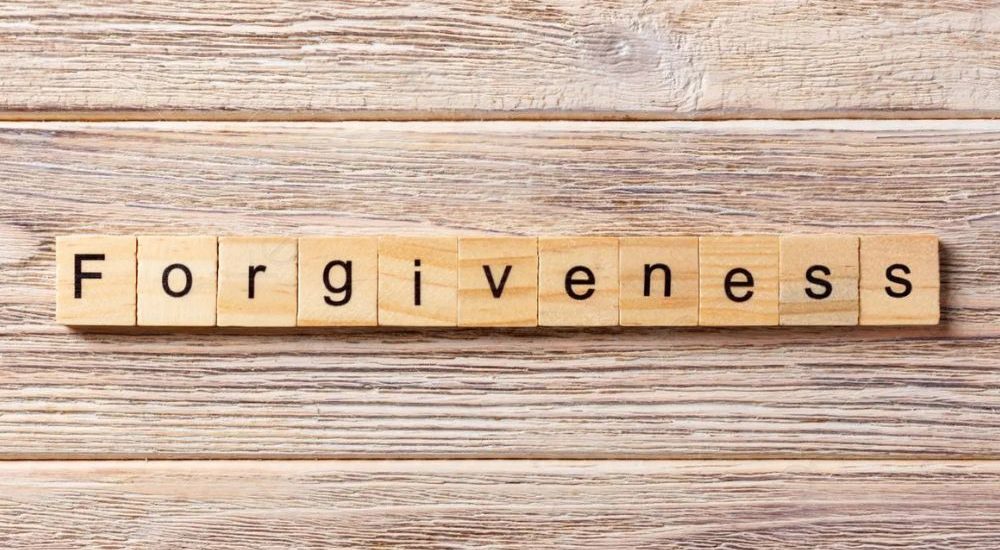Forgiveness is a powerful thing and it is a tricky concept.
We are often told that we need to forgive others in order to heal, move on and find peace. But, let’s be real here – forgiveness can be really hard!
Some acts are so horrendous, it seems hard to even fathom how someone could inflict them on others. So how can we forgive someone for doing something unforgivable?
But what I’ve come to realize is that forgiveness isn’t about excusing someone’s behavior or saying that what they did was okay. Nor is it about ignoring the pain they caused. Instead, forgiving is about finding a way to release the things that are holding us back and preventing us from living a fulfilling life.
And hey, if you’re struggling with forgiving someone for an unforgivable act, that’s okay too. It’s deeply personal and it might take some time and support to get there. But know that it’s possible and that ultimately, forgiveness can be a powerful tool in your own healing and growth.
In this article, we’ll explore the transformative power of forgiveness, its true nature, why we might struggle with it, and why it can be so beneficial to our emotional well-being.
Is Forgiving Forgetting?
We’ve all heard the phrase “forgive and forget” before, right? It’s often used as a way to encourage us to let go of our grudges and move on from past hurts. But here’s the thing: it’s not always possible or even healthy to forget what has happened to us.
Forgiving someone doesn’t mean we have to erase what someone did from our memory or pretend that it never happened. Instead, forgiveness starts with fully acknowledging what they did and the pain they caused us.
Forgiveness is Not
Forgiveness is not about letting others off the hook or condoning harmful behavior. It is not a sign of weakness, nor does it mean that we have to reconcile with those who have hurt us. Forgiveness is a personal choice that we make for our own benefit, not for the benefit of others.
So why does it feel so hard at times? And how can we truly let go of the hurt that someone has caused us? Let’s explore these questions further.
Why Do We Struggle with Forgiveness?
There are a few reasons why we might struggle with forgiveness.
1. Forgiving Feels like Excusing or Minimizing What Happened
Forgiveness can be a challenging concept for some because they may feel that forgiving someone means excusing their behavior or letting them off the hook. They may worry that by forgiving, they are condoning what the person did or sending the message that it was okay.
However, forgiving is not about justifying or minimizing the severity of the harm that was done. Rather, it’s about releasing the anger and resentment we hold towards the person who hurt us and finding a way to move forward without allowing the pain to define us. It’s a way of taking our power back and choosing to focus on our own healing and growth.
2. We Don’t Fully Acknowledge our Anger
Also, we might have difficulty with forgiveness and letting go because we don’t fully acknowledge our anger. We often hold onto anger and resentment towards the person who hurt us, but we don’t allow ourselves to fully embrace and express our anger. Society often views anger as destructive or inappropriate, so we learn to suppress it from a young age.
Feeling angry is a natural and necessary part of the healing process. To feel angry is to recognize that what happened was hurtful and wrong. By denying our anger, we’re not allowing ourselves to fully process and move through the pain, which can make it difficult to let go and forgive.
So we need to accept and know that it is okay to feel angry.

3. Holding onto Anger to Regain a Sense of Power and Control
Secondly, holding onto anger and resentment can be an unconscious way of trying to regain a sense of power and control in a situation where we felt helpless or victimized.
When someone has hurt us, it can make us feel very vulnerable and exposed, and we might hold onto our anger as a way of protecting ourselves from being hurt again.
However, this can be a double-edged sword as holding onto anger can also prevent us from moving on and healing from the hurt. In order to truly forgive, we need to confront the uncomfortable truth that we cannot control other people’s actions or the outcomes of certain situations, and that holding onto anger is ultimately holding us back from finding peace and moving forward.
4. Fear of Being Hurt Again
Another reason why we might struggle with forgiveness is that we fear being hurt again in the future if we forgive. We may believe that if we hold onto the memory of the pain, we might be better equipped to protect ourselves from experiencing it again. However, this fear can be a barrier to our own growth and healing. It can prevent us from fully embracing the present and moving forward with our lives. It’s important to acknowledge that forgiving someone does not mean we have to forget what happened or put ourselves in harm’s way again.
5. Forgiveness feels like a sign of weakness
Some people believe that forgiving someone is a sign of weakness, but that’s not true at all. In reality, it takes a lot of strength, courage, and empathy to forgive.
It takes strength to acknowledge the harm that has been inflicted upon us.
It takes courage to choose to forgive and move forward.
It takes a lot of self-empathy to accept and let go.
It’s can be a tough process, and it’s the opposite of weakness.
6. Shame Binds Us to Our Trauma
Let’s talk about shame – that heavy feeling that can weigh us down. When we’ve been hurt, it’s natural to feel pain and anger. But oftentimes, there’s another emotion lurking beneath the surface – shame.
Shame can make us believe that this terrible thing that has happened to us was somehow our fault and that we could have avoided it if we had just done things differently. This kind of thinking can bind us to our trauma and prevent us from fully healing and moving on.
But here’s the truth: trauma is never the victim’s fault. It’s not something we asked for or something we brought upon ourselves. And shame only serves to perpetuate the cycle of pain and hurt.
How Can We Embrace Forgiveness and Truly Let Go of the Hurt?
I understand, forgiving someone who has hurt us is not an easy task. So where do we start?
Acknowledge the Hurt and the Emotions
Forgiving requires us to confront the pain head-on and acknowledge the hurt that we feel. We shouldn’t label our emotions as negative or positive because all emotions have their place in our lives. Once we acknowledge and fully embrace our pain, anger, hurt, sadness, deception, etc, we can nurture that wounded part of ourselves.
Allowing Ourselves to Feel the Emotions
Even after acknowledging our hurt and other emotions, it can be difficult to fully embrace them. The pain and discomfort may seem overwhelming, and we may fear getting stuck in these emotions. However, it’s important to remember that all emotions are temporary – they come and go like waves.
One day, I heard the idea of “e-motion” as in “energy in motion”. It’s a helpful way to think about emotions and their temporary nature. It emphasizes the idea that emotions are not fixed states but rather dynamic processes that can change and move through us.
When we constantly try to push away our emotions, they tend to take up more and more space in our bodies and minds. This can make it even harder to process and manage our feelings. But when we allow ourselves to sit with the emotions and feel them fully, we eventually learn that it’s okay to feel.
Letting Go
Letting go is a powerful tool that can help us move toward forgiveness. Once we have fully embraced our emotions, we can ask ourselves a crucial question: how is this emotion serving us? We acknowledge that every emotion is valid and serves a purpose. And it is important to determine if it is still beneficial for us. In our deepest selves, we know when it is time to let go gently.
Understand how trauma is stored in the body
Trauma doesn’t just affect our psyche – it can also have a physical impact on our bodies. When the stress response from our trauma is activated, we cannot feel safe, and it might make it harder for us to embrace forgiveness. It’s crucial to work with modalities that acknowledge the mind-body connection and support us in healing the body, nervous system, and emotional (and spiritual) wounds.
Remembering that forgiveness is for ourselves
Choosing to forgive is a personal decision that requires a willingness to let go of negative emotions and move forward in life. It is important to remember that forgiving is for ourselves, not for the other person.
Self-Forgiveness and Self-Compassion
It’s important to recognize that we all make mistakes as humans and to forgive ourselves for any errors we may have made. Self-forgiveness entails taking responsibility for our actions and choosing to let go of any blame we may have placed on ourselves. It’s also having empathy and compassion for ourselves, and understanding that we did the best we could at the time.
When someone else’s actions harm us, we might fall into the trap of blaming ourselves for the harm that has been inflicted upon us. We might think that if we had done things differently, we could have avoided the harm. But we can’t control what others do, and we shouldn’t blame ourselves for their wrongdoing.
Letting go of self-blame and having lots of self-compassion and empathy can help us move forward with healing and growth
Seek Support
Seeking support from a trained professional can be helpful in the healing process. It allows us to process our emotions and gain perspective on the situation.
Why Forgiveness Matters
Forgiveness matters because it allows us to move on, live our lives without being weighed down by the past, and focus on the present. It frees us from the burden of emotions that are holding us back and allows us to experience a more fulfilled life.
The Psychological Benefits of Forgiveness
Research has shown that forgiveness has many psychological benefits. It reduces stress and anxiety, promotes feelings of happiness and well-being, and increases self-esteem and resilience. Forgiveness has also been linked to reduced depression and improved coping skills.
Impact on Physical Health
The act of forgiveness can also have a profound impact on our physical health. Holding onto anger and resentment can lead to increased stress and cause dysregulation in the nervous system. This in turn can lead to a variety of health problems, such as high blood pressure and a weakened immune system.
Forgiveness can improve relationships
Forgiving can also improve our relationships with others. By choosing to let go of the hurt and negative emotions, we can build more positive and harmonious relationships.
Forgiveness Does Not Always Mean Reconciliation
It’s important to note that forgiveness does not always lead to reconciliation. It is possible to forgive someone and still choose to end the relationship or distance ourselves from the person. Forgiveness is a personal choice that does not require the other person to apologize or make amends.
The Take Home Message
In conclusion, forgiveness is an important element in emotional healing and growth. It’s important to acknowledge the pain from your past and work through the emotions associated with it. By doing so, we can build more positive relationships and live a more fulfilling life.
Remember, forgiving is not about minimizing the severity of what happened. It is not about letting others off the hook or condoning harmful behavior. It is not a sign of weakness, nor does it mean that we have to reconcile with those who have hurt us.
It’s about acknowledging the pain, letting go of the negative emotions, and moving forward in life. Forgiveness is a personal choice that we make for our own benefit, not for the benefit of others.






